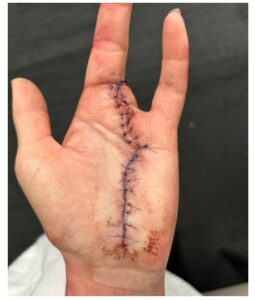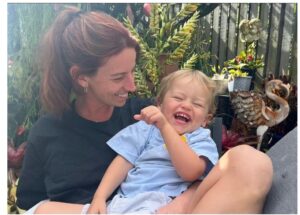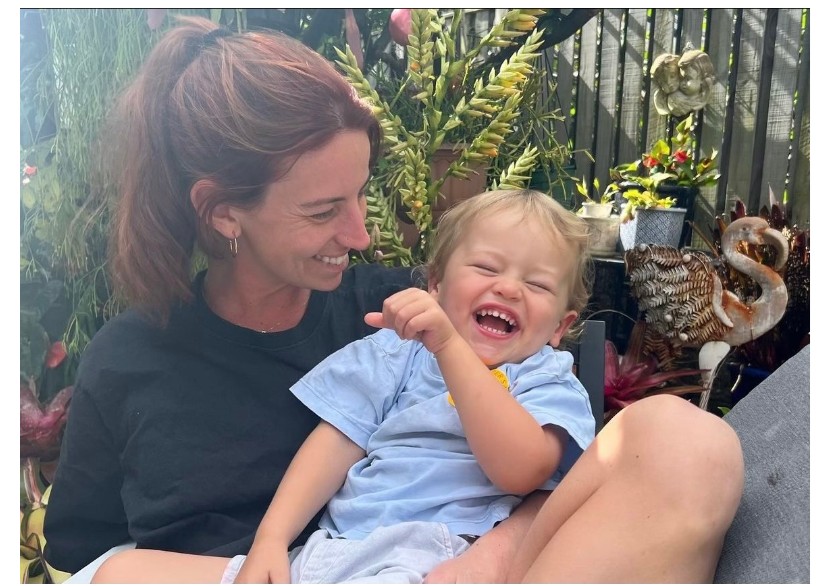31-year-old hairdresser, Rosie, would often look down at the lump in her hand and wonder what it was. It had been there for as long as she could remember, the size of a pea near the centre of her palm.
“I couldn’t decide if it was something to worry about, or if it was just part of my body. It was painless and didn’t change size, so I didn’t think too much of it. My GP suggested an ultrasounda type of medical imaging that uses soundwaves to create detailed images of the body and MRI as a precaution, but nothing showed up.”
As time went on, the lump became bigger and painful, and was getting in the way of her job. Rosie decided to have elective surgerytreatment involving removal of cancerous tissue and/or tumours and a margin of healthy tissue around it to reduce recurrence to get it removed.
 “When I returned a week later to get my dressing replaced, the doctor said she had to tell me something very serious. She said they had biopsied the lump, and it looked like a very rare tumoura tissue mass that forms from groups of unhealthy cells called epithelioid sarcomacancer arising from bones and/or soft tissue. She wanted me to have the rest of my body scanned to see if it had spread anywhere else.
“When I returned a week later to get my dressing replaced, the doctor said she had to tell me something very serious. She said they had biopsied the lump, and it looked like a very rare tumoura tissue mass that forms from groups of unhealthy cells called epithelioid sarcomacancer arising from bones and/or soft tissue. She wanted me to have the rest of my body scanned to see if it had spread anywhere else.
“I was in absolute shock. I couldn’t take in the news. Did she say it was cancera disease where abnormal cells split without control and spread to other nearby body tissue and/or organs or not? What am I supposed to do next? I was so confused and in total disbelief.”
When scans confirmed the cancer had not spread, Rosie and her family thought she was in the clear. Then she received the news that she’d need to travel to a larger hospital to have the rest of the cancer removed from her hand.
“I assumed they didn’t get it all, and I might need another operation or some radiation to get rid of what they missed. Instead, the doctor told me he wanted to amputate two of my fingers. He said they don’t know much about this type of cancer except that it’s rare and aggressive, and that this was the only reliable treatment. Hearing that news – delivered so bluntly and unexpectedly – was absolutely devastating.”
Unable to believe this was her only option, Rosie sought a second opinionwhen a patient seeks another evaluation from a different doctor from a highly recommended oncologista doctor who specialises in the study, diagnosis and treatment of cancer in another state.
“The second doctor came to the same conclusion, but his delivery was kind. He was respectful and I was reassured by his confidence.”

Rosie had the middle and ring finger on her left hand amputated just before Christmas in 2022.
“I’ve lost my career as a hairdresser. It’s affected my self-esteem, increased my anxiety. I can’t do the daily tasks the same way I used to – preparing meals, washing my hair, making my bed, carrying my son. All the things we take for granted.”
“My son is nearly three. I missed him during this whole ordeal, as I couldn’t be as present as I wanted to be. But he understands mummy has a sore hand. He kisses my hand and offers me band-aids. When he’s older he’ll understand more about what happened.

“The thing about rare cancer is there is so much fear involved. It’s isolating and scary because there’s not a lot of information out there and very little certainty.
“My Specialist Cancer Navigator at Rare Cancers Australia was on the top of our call list for weeks and weeks. He helped us work out what step to take next, what path to take, so we could make the right decisions.
“When I was confused or anxious, I felt genuine empathy from him. He said he’d be with me every step of the way, and he was. That was so incredibly comforting. He has helped me to live in the moment and enjoy life, to see things from a different perspective. When I talk to him, I forget what I was worried about before.
“He helped me with practical things too, like vouchers for food and petrol, and funds to pay for travel to appointments. He pointed me in the right direction for help with my finances. He offered us help in any area, in any way, at any time. He basically guided me through the whole thing, and still is.”
Reflecting on her experience, Rosie strongly advocates for patients to push for answers.
“I had a gut feeling something wasn’t right, and I wasn’t getting the answers I needed. I wish someone had suggested a biopsyremoval of a section of tissue to analyse for cancer cells earlier. My advice is to get things checked early, and to push for second opinions if you need to. It’s so important.”
